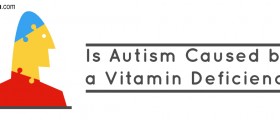
Vitamin B12, also known as cobalamin, is a water soluble vitamin that plays an important role in human health. This vitamin is responsible for the proper functioning of the nervous system, brain and the formation of blood. Vitamin B12 is involved in cell metabolism, synthesis of fatty acids and energy production. Vitamin B12 helps maintain healthy nerve and red blood cells, and is also needed to formulate DNA, the genetic material in all cells.
Sources of vitamin B12
Humans are obtaining vitamin B12 from a variety of foods, especially animal products. Vitamin B12 is found in fish, meat, poultry, eggs, milk, and milk products and fortified breakfast cereals. This vitamin is first made by yeast and microorganisms, thus many vegetarian sources are also available. Vegetable food products such as fermented soy products, seaweeds, and algae are potentially rich vegetarian sources of vitamin B12, but scientists find these sources inadequate or unreliable for humans.
Recommended daily dosage of vitamin B12
The recommended daily dosage of vitamin B12 depends on the age. Adults, over 14 years old, should take approximately 2.4 micrograms per day. Adult females need 2.6 micrograms of vitamin B12, while adult males need 2.8 micrograms per day. Approximately 10 to 30% of elderly population can’t absorb food-bound vitamin B12 efficiently, they should eat foods fortified with B12 or take a vitamin B12 supplement.
Children and teenagers under 18 years old should take different dosages depending on their age. Infants younger than 6 months need 0.4 micrograms, infants from 7 to 12 months need 0.5 micrograms, children from 1 - 3 years need 0.9 micrograms, children from 4 to 8 years need 1.2 micrograms, and children from 9 to 13 years old need 1.8 micrograms.
Vitamin B12 deficiency
Human body may store vitamin B12 and form a stock sufficient for a couple of years. This way, deficiency of vitamin B12 is extremely rare. Sometimes the deficiency occurs as a result of patients inability to process and absorb vitamin B12. The other groups of individuals at higher risk of developing vitamin B12 deficiency are vegetarians and vegans.
Vitamin B12 deficiency is a potentially dangerous condition as it develops without any obvious symptoms but may cause severe damage to the nervous system. The most common symptoms of vitamin B12 deficiency are fatigue, decreased cognitive capacity and difficulty to perform mental tasks, weak concentration and memory, irritability and depression. Most of the patients complain sleep disturbances and abnormal sleep-wake cycle.
Other symptoms include itching or tingling tongue, especially around the edges; white spots on the skin, that appear because of the lack of melatonin; shortness of breath; cracks at the corners of the mouth; facial pain; migraine headaches etc.

















Your thoughts on this
Loading...